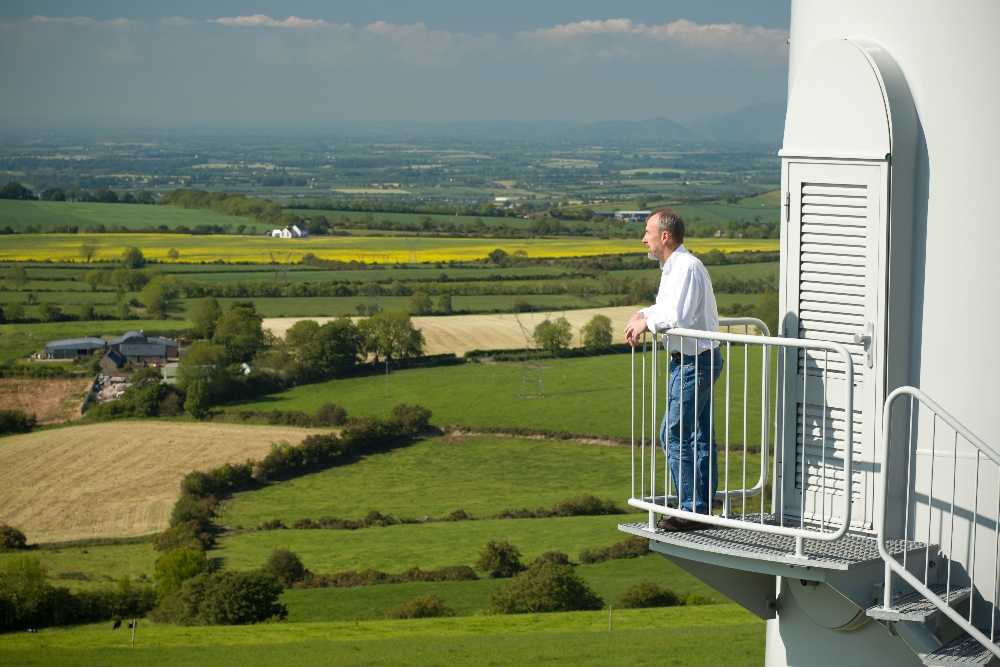Governments globally eyeing domestically produced, low-cost, low-carbon energy in a bid to reduce their dependence on imports.
Ireland has maintained its standing in the latest edition of the EY Renewable Energy Country Attractiveness Index (RECAI) remaining in 13th position overall at a time when global investment in renewable energy is soaring as Governments eye domestically produced, low-cost, low-carbon energy in a bid to reduce their dependence on imports.
The RECAI is EY’s biannual flagship global renewables report. Now in its 61st edition, the index ranks the world’s top 40 markets based on the attractiveness of their investment in renewable energy and deployment opportunities.
“We have seen the commercial imperatives line up strongly with the climate action agenda. This is driving a marked increase in enquiries and transactions in this space as a result”
Ireland’s overall global ranking of 13th remains unchanged since the last index, in November 2022. Notably, Ireland has climbed four places and is now ranked 19th in terms of use of Corporate Power Purchase Agreements (CPPA), an arrangement where a company procures renewable electricity through a direct contractual agreement with a renewable electricity generator.
This reflects the significant increase in the use of CPPAs in Ireland over the past 24 months as major corporates advance on their decarbonisation agendas, and it bodes well for achieving the goal set out in the Climate Action Plan to generate 15% renewable energy through such agreements.
Offshore wind potential
Stephen Prendiville, EY Ireland Head of Sustainability
The global index also specifically references the success of Ireland’s recent Offshore Wind Auction, which saw some of the most competitive pricing for offshore wind deployment seen anywhere in the world. The pipeline of future projects is also flagged, and the opportunity for Ireland is clear in the context of competitive advantage in offshore wind development attractiveness.
“The global drive for energy security and a recessionary environment means the renewables industry has never had a better opportunity to accelerate. Interdependent legacy market dynamics are no longer seen as sustainable, while domestically produced, low-cost, low-carbon – and in some cases, low-lead time – energy looks more attractive than ever,” said Stephen Prendiville, EY Ireland Head of Sustainability.
“Globally, we are seeing that developing policies to encourage the buildout of renewables has risen to the top of government agendas right around the world.
“The EY Renewable Energy Country Attractiveness Index rankings once again confirm that Ireland is the Goldilocks among nations for renewable energy development, combining the right blend of policy, structures, available finance, talent, resources, and drive to succeed. The rankings and analysis point to significant upside potential across many of the renewable technologies currently being deployed, such as wind (onshore and offshore), solar, biomass and hydro. Our stable economy and geographical positioning in the flow of material supply chains combined with capital investment, educated and skilled workforce, and the Government’s ambitious climate action policy, make Ireland a leading nation in this space.
Notably, the report makes a particular reference to Ireland’s potential in offshore wind.
It points out that there is significant potential for Ireland in area of green hydrogen production and storage.
“If we can unlock our full potential as part of the planning system reforms currently under investigation, I expect Ireland will climb the rankings quickly – and more importantly – we’ll be leading the way for the energy transition and positive climate action,” said Prendiville.
Commenting on the increased use of CPPAs, Anthony Rourke, EY Ireland Government and Infrastructure Advisory Director, said that the energy crisis of the past 18 months has accelerated the energy transition plans of many medium to large users.
“Equally, many more businesses are demonstrating their commitment to delivering on their decarbonisation plans. In many cases CPPAs are a critical component of these strategies. We have seen the commercial imperatives line up strongly with the climate action agenda. This is driving a marked increase in enquiries and transactions in this space as a result.”
-
Bank of Ireland is welcoming new customers every day – funding investments, working capital and expansions across multiple sectors. To learn more, click here
-
For support in challenging times, click here
-
Listen to the ThinkBusiness Podcast for business insights and inspiration. All episodes are here. You can also listen to the Podcast on:
-
Spotify
-
SoundCloud
-
Apple






